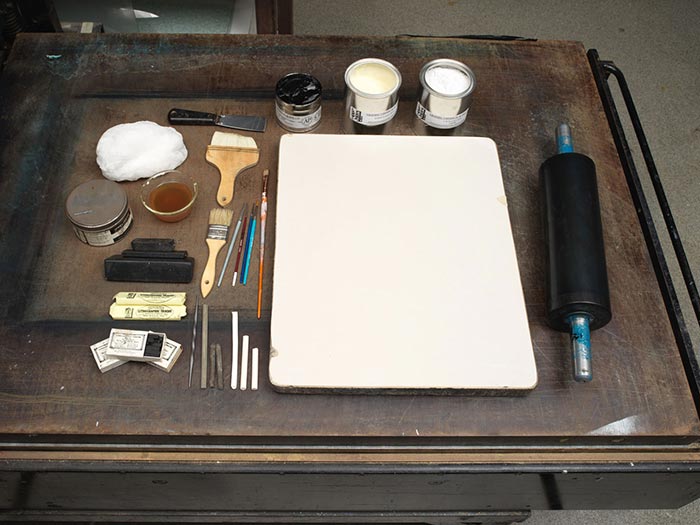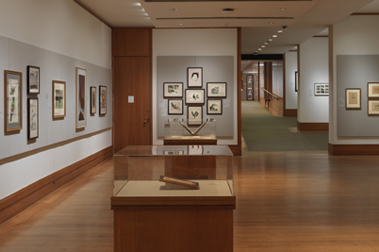Well--I'm Blowed!
Thomas B. Worth American
Publisher Currier & Ives American
Not on view
Currier & Ives produced many humorous prints relating to horses, carriages, and horse racing. In this print, a severely-winded, hard-breathing horse stands at center, still hitched to its wagon (right). The driver, wearing a pinkish long coat (with his lap covered) and a tan hat, scratches his head with his left hand and scowls as he watches his two racing rivals speed away in their one-horse drawn wagons (far left). At right, a Black (African American) man stands holding a red bucket and looks up at the driver; he wears high-waisted brown pants (patched at the knees), a blue shirt (with thin dark stripes), a dark cap and black shoes. In the background, extending from right to center, is a white picket fence; a farmhouse (to left of center).appears beyond the green field. The title is imprinted in the bottom margin.
Nathaniel Currier, whose successful New York-based lithography firm began in 1835, produced thousands of prints in various sizes that together create a vivid panorama of mid-to-late nineteenth century American life and its history. People eagerly acquired such lithographs featuring picturesque scenery, rural and city views, ships, railroads, portraits, hunting and fishing scenes, domestic life and numerous other subjects, as an inexpensive way to decorate their homes or business establishments. As the firm expanded, Nathaniel included his younger brother Charles in the business. In 1857, James Merritt Ives (the firm's accountant since 1852 and Charles's brother-in-law) was made a business partner; subsequently renamed Currier & Ives, the firm continued until 1907. The artist of this print is Thomas Worth, a prolific nineteenth-century illustrator who excelled at drawing horses and other subjects, many of which were made into lithographs published by Currier & Ives.

